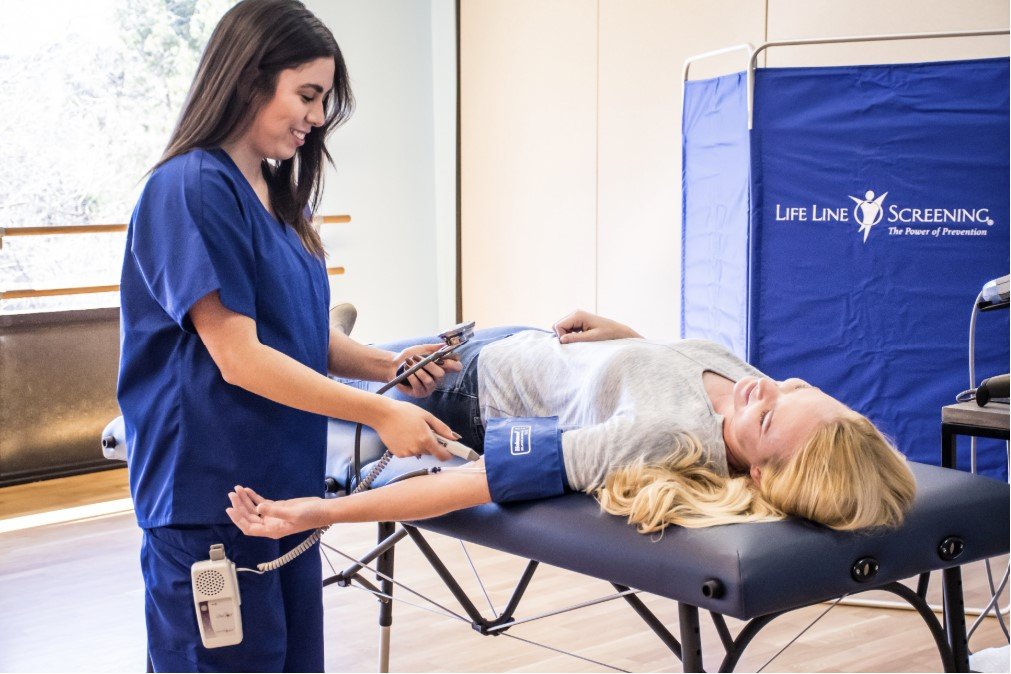By Irishexaminer.com,Sharon Ní Chonchúir
Copyright irishexaminer

Her GP suspected an overactive thyroid. A blood test confirmed it, and Lingard was prescribed daily tablets. Some months later, her thyroid function returned to normal, and she no longer had to take medication.
However, in 2016, she began to gain weight, felt constantly tired and cold. She attributed these symptoms to perimenopause, but decided to go to the doctor.
A blood test revealed Lingard had the opposite problem: She now had an underactive thyroid.
“I was prescribed another daily tablet and soon started feeling a lot better,” she says. “I still take it and have regular blood tests to keep an eye on my thyroid.”
Many women have difficulties with their thyroid. The Irish Examiner’s National Women’s Health Survey, carried out by Ipsos B&A earlier this year, found that 11% of perimenopausal, menopausal, and post-menopausal women had experienced thyroid health issues, and a further 24% thought they might have.
Consultant endocrinologist and associate professor at University College Dublin, Carla Moran, specialises in thyroid disease.
The thyroid, she says, is “a gland situated in the little dip in your neck just above the upper part of your sternum. It makes thyroid hormones T4 (thyroxine) and T3 (triiodothyronine), which are essential to life.”
She elaborates on this by outlining how babies born without a thyroid gland are affected.
Their health outcomes include stunted growth, severe intellectual disabilities, deafness, and significant gut issues.
“But, luckily, only one in every 3,000 babies is born without a thyroid,” says Moran. “We test for the presence of those hormones as part of the heel-prick test that is given to all newborns as standard, and if there is no thyroid, we have medication that replaces the missing thyroid hormones that allows these children to grow and develop as normal.”
The body’s generator
Dr Maeve Durkan is a consultant endocrinologist and a senior clinical lecturer in medicine at University College Cork. She compares the thyroid to “a generator that controls the metabolism of every cell in the body”.
While it may be unusual for babies to be born without a thyroid gland, the findings of the National Women’s Survey show that it’s not so rare for problems with the thyroid to develop later in life.
Durkan says that “the generator can become overactive, leading to excessive production of thyroid hormones. This speeds us up and can make us feel anxious and panicky, cause us to lose weight, experience heart palpitations, have more frequent bowel movements, and become more sweaty.”
The thyroid can also suffer from underactivity, which results in the production of too few thyroid hormones.“That slows us down and causes us to feel sluggish and fatigued, to experience low mood, gain weight, become constipated, feel cold, and have sore muscles and dry hair and skin,” says Durkan.
Some 3% of the population develops an underactive thyroid, which is also called hypothyroidism, says Moran. The issue affects women eight times more often than it does men.
“An overactive thyroid, or hyperthyroidism, affects about 1% of the population,” she says. “And, again, it’s more common in women.”
Thyroid problems can also be a factor in fertility issues, Durkan says, and doctors now test for both hyperthyroidism and hypothyroidism if a woman is struggling to get pregnant or has experienced pregnancy loss.
“Addressing a woman’s underlying thyroid issues and ensuring that her thyroid hormone levels are normal will increase her chances of conceiving and carrying a baby to term,” she says.
In addition to hypothyroidism and hyperthyroidism, a more common issue in thyroid health is the development of nodules, Moran says.
These are “little lumps and bumps, just like those we get on our skin, and some 50% of us, both male and female, will get on them our thyroid as we get older”.
In the vast majority of cases, these nodules are small and benign, and they typically do not cause symptoms. “We won’t even know we have them,” says Moran. “But some will grow larger and cause discomfort when swallowing, or a feeling of tightness or constriction. In these cases, medication or surgery may be recommended.”
Confusing symptoms
Dr Shandeep Momi is a Dublin-based GP who specialises in thyroid health in his online clinic, functionalthyroidcare.com. He says one of the biggest challenges with both hyper- and hypothyroidism is that their symptoms can easily be confused with the side effects of stress, ageing, or mental-health issues, like depression. That’s what happened to Momi’s wife, Renata.
“After the birth of our second child, she had symptoms like anxiety, panic attacks, brain fog, heart palpitations, difficulty sleeping, and energy issues that didn’t seem to fit with what we usually see after pregnancy and childbirth,” he says. “She was told it was a mental-health problem, but didn’t believe it. Nor did I. She was eventually diagnosed with Hashimoto’s, an autoimmune disorder that can cause an underactive thyroid, and that experience was what led me to spend years researching thyroid health and now working exclusively with those experiencing thyroid problems.”
Most of Momi’s patients are women. He can’t be sure why thyroid problems affect more women than men, but speculates that it could be due to “their fluctuating monthly hormonal cycles”.
Durkan suggests that it might be because women suffer from autoimmune conditions more than men do. “Both under- and over-active thyroids can be caused by autoimmune conditions, so that’s a factor, especially in the aftermath of pregnancy,” she says. “A woman’s immune system dampens down while she’s pregnant, so as not to react to the foreign body that is the baby. After birth, her immune system ramps back up and sometimes comes back stronger. It’s relatively common for thyroid issues, particularly hyperthyroidism, to emerge in women at this time, but it often settles back down again.”
If hyperthyroidism doesn’t settle down and isn’t treated, it can damage the heart, leading to an irregular heartbeat or atrial fibrillation, Durkan says. However, for such damage to occur, the delay in diagnosis would have to be prolonged, which rarely happens in Ireland. That’s because testing for both hyperthyroidism and hypothyroidism is simple: A blood test.
Treatment is relatively simple, too. For patients with hypothyroidism, GPs prescribe a medication called Levothyroxine to replenish the levels of thyroid hormones.
“It’s a daily tablet that suits the vast majority of people with little to no side effects,” says Moran. “Symptoms typically resolve in a matter of weeks, but patients usually continue taking Levothyroxine long term.”
Those with hyperthyroidism are often prescribed a medication called methimazole, or carbimazole. “With both, the dose needs to be adjusted in order to cut the production of the thyroid hormones to the required level,” says Durkan. “These medications are usually prescribed under the care of an endocrinologist, who keeps the patient under regular review.”
Family history
Having experienced hyperthyroidism early in her 40s and hypothyroidism later in that same decade, Lingard can testify to the fact that the medication works.
“I only had to take the medication for my overactive thyroid for a few months before my condition settled,” she says. “And it didn’t take long for the Levothyroxine to take effect, either. My dizziness went away, and I felt better in a matter of weeks. The weight gain, unfortunately, hasn’t been so easy to turn around. That’s an uphill battle.”
While she was looking in to her own medical issues, Lingard found out that both her parents had had thyroid problems. Two of her sisters have since been diagnosed with underactive thyroids.
This is why she now urges everyone, particularly those with a family history, to take symptoms seriously.
“Initially, I wrote my symptoms off as tiredness or the result of just having had a baby or being perimenopausal, but I’m glad now that I didn’t continue to ignore them. We should never take our health for granted or put off going to the doctor for fear of being seen as paranoid. Especially when something as simple as a blood test could show that something is actually wrong and a small daily pill could help make it all better.”
Experts share lifestyle habits that can support thyroid health
Keep stress levels in check: Momi believes stress is a significant factor in developing thyroid problems and urges his patients to take steps to manage theirs. “I include sleep in this,” he says. “Aim for seven to nine hours of sleep a night.”
Exercise regularly: Momi emphasises that “this doesn’t have to mean running marathons or excessive cardio workouts. What’s important is keeping the body active, so that it doesn’t get sluggish. That helps with all basic bodily processes and overall health, including the health of our thyroid.”
Eat a balanced diet: Momi advises his patients to eat more fruit and vegetables, drink plenty of fluids, cut down on alcohol, and reduce intake of foods that contain processed sugars, artificial colours, and preservatives.
Stop smoking: Moran says that “thyroid issues tend to be worse in smokers”.
Pay attention to your iodine intake: Moran explains that iodine is “important in thyroid health, because the gland needs it to make sufficient amounts of hormones”. While most of us will get enough iodine from eating a healthy, balanced diet, people who restrict their intake of dairy, fish, and seafood may need to take a supplement to achieve an adequate intake. Don’t go overboard, as too much iodine can also adversely affect your thyroid, triggering hyperthyroidism. The HSE recommends that adults aim for an intake of 140 mcg per day.
Visit a doctor if you experience recurring symptoms: “Even if you’re a woman of a certain age who has started to feel tired and gain weight, and you assume it’s menopause, go to your doctor and ask to have your thyroid function checked first,” says Durkan. “All that is required is a simple blood test. If it comes back normal, your symptoms are likely to be menopausal. But the test could also indicate that your thyroid hormone levels are too high or too low. In either case, treatment could result in making you feel a lot better.”



